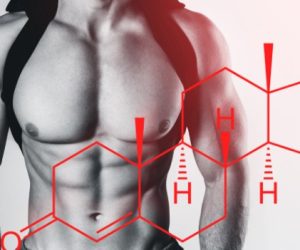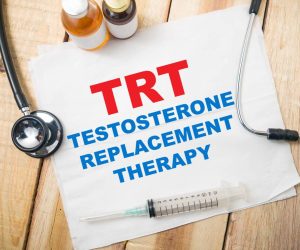Low T Treatment: Myths vs. Facts

Low testosterone, often known as Low T, is a topic surrounded by myths and misconceptions. Understanding what Low T treatment can and cannot do is crucial for anyone exploring their options.
Some believe that testosterone replacement therapy (TRT) is only necessary for men with severe symptoms, but research shows it can benefit men with a range of low testosterone levels.
One common myth is that TRT is the same as taking steroids. In reality, TRT is carefully managed to maintain healthy testosterone levels, unlike anabolic steroids used for performance enhancement. Knowing the difference is key to making informed decisions about health.
Another concern is the side effects of TRT. While there can be risks such as acne and decreased sperm count, these are typically monitored by healthcare providers to ensure safety.
Key Takeaways
- Low T treatment benefits are broader than many think.
- TRT is distinct from anabolic steroid use.
- Monitoring can mitigate TRT side effects.
Understanding Testosterone and Low T

Testosterone plays a crucial role in male health, impacting everything from mood to muscle mass. Low testosterone, also known as Low T, can result in notable changes in the body and may be influenced by various factors.
Feeling constantly tired, struggling with low energy, or experiencing a decrease in libido?
These could be signs of low testosterone. At Florida Men’s Health, our specialized Low T treatment is designed to help you regain your vitality and improve your overall well-being. Our expert team provides personalized care and effective treatment plans tailored to your unique needs. Don’t let low testosterone affect your quality of life—contact us today to start your journey towards feeling revitalized and energized.
The Role of Testosterone in Male Health
Testosterone is a key hormone in men. It is responsible for muscle mass, bone density, and the production of red blood cells. It also influences mood, energy levels, and sex drive.
In males, testosterone is primarily produced in the testicles. A small amount is also made in the adrenal glands. This hormone peaks in a man’s early 20s and slowly declines with age.
Recognizing Signs of Low Testosterone
Low testosterone can present with various symptoms that might affect daily life.
Common signs include fewer and weaker erections, less energy, and a depressed mood. Men may also experience reduced muscle mass and strength, increased body fat, and loss of bone strength.
These symptoms can sometimes be mistaken for normal aging. However, persistent issues, such as anemia or severe fatigue, warrant further medical evaluation. A blood test measuring testosterone levels can confirm a diagnosis.
Factors Contributing to Low Testosterone Levels
Age is a primary factor in lowering testosterone levels; they naturally decrease by about 1% each year after age 30.
Certain medical conditions can also contribute to low testosterone. Disorders of the testicles, pituitary gland, or brain can disrupt hormone production. Conditions such as obesity, type 2 diabetes, and obstructive sleep apnea are linked to lower testosterone levels.
Lifestyle factors like excessive alcohol consumption, stress, and lack of sleep can also impact hormone levels. Addressing these factors through lifestyle changes or medical treatments can help improve testosterone levels and overall health.
Debunking Common Myths about Low T Therapy

Many misconceptions exist about low testosterone (Low T) and its treatment, leading to misunderstandings. This section aims to clear up some common myths and provide accurate information about testosterone replacement therapy (TRT).
Myth #1: Low testosterone is a normal part of aging
It’s a common misconception that low testosterone is just a natural part of getting older. While testosterone levels can decline with age, significant drops are not normal and can indicate underlying health issues.
Important Points:
- Low testosterone can affect men of all ages.
- Symptoms include fatigue, depression, and decreased muscle mass.
- Early diagnosis and treatment are essential.
Myth #2: Low testosterone only affects a man’s sex drive
People often think that low testosterone only impacts sexual function. While it does affect the sex drive, its impact goes much further, influencing overall health and well-being.
Critical Effects:
- Low energy levels and fatigue
- Mood swings and depression
- Loss of muscle mass and strength
- Increased body fat
Addressing these symptoms can significantly improve quality of life.
Myth #3: There are no safe treatment options for low testosterone
Another myth is that testosterone replacement therapy (TRT) isn’t safe. Concerns around heart attack, stroke, and cancer risks often deter men from seeking treatment.
Safety and Research:
- Modern TRT is generally safe when monitored by a healthcare provider.
- Evidence regarding serious health risks like blood clots or prostate cancer is mixed, but many studies show no significant increase in these risks.
- TRT can improve symptoms of low testosterone and enhance quality of life.
Myth #4: You can handle low testosterone on your own
Some believe that diet, exercise, and lifestyle changes alone can manage low testosterone levels. While these factors are important, they may not be enough for everyone.
Effective Management:
- Professional medical advice is crucial.
- TRT and other medications may be necessary.
- A combination of lifestyle changes, diet, and TRT often yields the best results.
Consulting with a healthcare provider ensures a comprehensive approach.
Are you dealing with mood swings, weight gain, or diminished muscle mass?
Hormone imbalances can significantly impact your life. At Florida Men’s Health, our Hormone Replacement Therapy (HRT) is here to restore balance and enhance your health. We offer customized treatment plans to address your specific symptoms and help you achieve optimal hormone levels. Regain control over your health and well-being—reach out to us now to learn how HRT can make a difference for you.
Treatment Approaches for Low Testosterone

Treatment options for low testosterone include various methods of testosterone therapy and a structured plan for monitoring and managing the condition over the long term.
Each method has its own advantages, effectiveness, and potential risks, making it important to work closely with a healthcare professional.
Testosterone Therapy: Methods and Effectiveness
Testosterone therapy comes in several forms. These include injections, gels, patches, and creams. Each method delivers testosterone to the body differently.
- Injections: These are administered either into a muscle or under the skin. They are usually given every one to two weeks and can cause fluctuations in testosterone levels.
- Gels: Applied daily to the skin, gels provide a steady absorption of testosterone. The risk of skin-to-skin transfer to others is a concern.
- Patches: These are also applied to the skin but are usually replaced daily. They provide a consistent dose but may cause skin irritation.
- Creams: Similar to gels, creams are applied to the skin daily and absorbed gradually.
Each method’s effectiveness varies, and the choice often depends on personal preference, lifestyle, and how one’s body responds to treatment.
Potential side effects can include acne, sleep apnea, and increased risk of cardiovascular issues.
Monitoring and Long-Term Management of Low T
Long-term management of low testosterone requires continuous monitoring of testosterone levels and adjustments to the treatment plan.
Regular blood tests are essential to ensure that testosterone levels remain within a target range.
A healthcare professional, typically a urologist or endocrinologist, will monitor the treatment’s impact on overall health.
This includes assessing any potential risks such as changes in cholesterol levels, increased red blood cell count, and prostate health.
Patients should communicate any side effects or changes in symptoms to their healthcare provider.
Adjustments to the type or dosage of testosterone therapy may be necessary to maintain effectiveness and minimize risks. Regular follow-ups help ensure that the treatment plan remains appropriate over time.
Summary
- Low testosterone (Low T) treatment is often misunderstood, with myths surrounding its necessity and safety.
- Testosterone replacement therapy (TRT) is different from anabolic steroids and is managed to maintain healthy levels.
- TRT can have side effects, but these are typically monitored by healthcare providers to ensure safety.
- Low T can affect more than just sex drive, influencing energy levels, mood, muscle mass, and body fat.
- Significant drops in testosterone are not a normal part of aging and can indicate underlying health issues.
- TRT is generally safe when monitored by a healthcare provider, with mixed evidence on serious health risks.
- Lifestyle changes alone may not manage low testosterone effectively; professional medical advice is important.
- Treatment options for Low T include injections, gels, patches, and creams, each with its own benefits and potential risks.
- Long-term management of Low T involves regular monitoring and adjustments to the treatment plan.
- Consulting with a healthcare provider ensures a comprehensive approach to managing Low T and mitigating risks.
Frequently Asked Questions
Testosterone levels and their impacts have been widely discussed and sometimes misunderstood. This section addresses some of the most common questions and concerns surrounding low testosterone in men.
What are the common misconceptions regarding testosterone decline over generations?
Some people believe that testosterone declines significantly with each new generation of men. This is a myth. Changes in lifestyle, diet, and environmental factors can affect testosterone levels, but there isn’t strong evidence showing a dramatic generational decline.
How has testosterone level fluctuation in men been historically documented?
Historically, testosterone levels in men have been measured using blood samples. Research over the years has shown that levels can fluctuate due to age, health, and lifestyle choices.
Modern studies suggest that while levels naturally decline with age, significant drops can indicate health issues.
Are associations between testosterone and aggressive behavior scientifically supported?
There is a common belief that high testosterone leads to aggressive behavior. While testosterone can influence mood and energy levels, the link between testosterone and aggression is not clear-cut.
Some studies indicate a potential correlation, but other factors such as personality and social environment play crucial roles.
Can psychological issues arise from low testosterone levels in men?
Low testosterone, or “low T,” has been linked to various psychological issues. Men with low T may experience mood swings, depression, irritability, and low self-esteem.
These symptoms can affect daily life and relationships, highlighting the importance of addressing low testosterone levels.
What are the primary factors contributing to low testosterone, or ‘low T,’ in males?
Several factors can contribute to low T in males. Aging is a primary factor, but other contributors include obesity, poor nutrition, lack of exercise, and certain medical conditions.
Lifestyle choices like smoking and excessive alcohol consumption can also lower testosterone levels.
What should be considered when evaluating the benefits and risks of low T treatments?
When considering low T treatments, it’s important to weigh the benefits against potential risks.
Treatments can improve mood, energy, and libido. However, they can also have side effects like increased red blood cell counts and risk of cardiovascular problems.
Consulting with a healthcare provider is crucial for making an informed decision.




